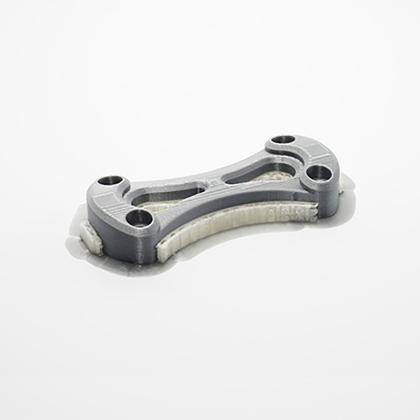The Advantages of FDM 3D Printing Services in Various Industries
Body
3D printing has revolutionized the manufacturing industry, offering a wide range of benefits to various sectors. One of the most popular and widely used 3D printing technologies is Fused Deposition Modeling (FDM). FDM 3D printing services have become increasingly popular due to their numerous advantages in various industries.

Enhanced Design Flexibility
One of the key advantages of FDM 3D printing services in various industries is the enhanced design flexibility it offers. Traditional manufacturing methods often have limitations when it comes to complex geometries and intricate designs. However, with FDM 3D printing, businesses can create intricate and complex designs with ease. This technology allows for the production of parts with internal cavities, undercuts, and intricate details that would be difficult or impossible to achieve with traditional manufacturing methods.
For example, in the automotive industry, FDM 3D printing services can be used to create custom car parts with complex geometries, such as air ducts and engine components. In the medical industry, FDM 3D printing can be used to create patient-specific implants and prosthetics that perfectly fit the individual's anatomy.
Cost and Time Efficiency
Another significant advantage of FDM 3D printing services in various industries is the cost and time efficiency it offers. Traditional manufacturing methods often involve complex tooling and setup processes, which can be time-consuming and expensive. On the other hand, FDM 3D printing eliminates the need for tooling, allowing for faster and more cost-effective production.
Furthermore, FDM 3D printing services can reduce material waste by only using the exact amount of material required for the production of a part. This not only saves costs but also contributes to a more sustainable manufacturing process.
For example, in the aerospace industry, FDM 3D printing services can be used to produce lightweight and complex parts, reducing the overall weight of the aircraft and improving fuel efficiency. In the consumer goods industry, FDM 3D printing can be used to quickly prototype and produce customized products, reducing time-to-market and increasing customer satisfaction.
Prototyping and Iteration
FDM 3D printing services are particularly advantageous for prototyping and iteration purposes. Traditional prototyping methods often involve lengthy and expensive processes, such as CNC machining or injection molding. However, with FDM 3D printing, businesses can quickly and cost-effectively produce prototypes and iterate on designs.
By using FDM 3D printing services, businesses can easily test and validate their designs before moving forward with mass production. This allows for faster product development cycles and reduces the risk of costly errors or design flaws.
For example, in the architecture and construction industry, FDM 3D printing services can be used to create scale models and prototypes of buildings, allowing architects and engineers to visualize and test their designs before construction begins. In the electronics industry, FDM 3D printing can be used to produce functional prototypes of circuit boards, enabling rapid testing and iteration.
Wide Range of Materials
FDM 3D printing services offer a wide range of materials to choose from, making it suitable for various industries and applications. From standard thermoplastics to advanced engineering materials, FDM 3D printing can accommodate different requirements and specifications.
For example, in the healthcare industry, FDM 3D printing services can use biocompatible materials to produce medical devices and implants. In the automotive industry, FDM 3D printing can utilize high-performance materials to create durable and heat-resistant parts.
Overall, the advantages of fdm 3d printing services in various industries are vast. From enhanced design flexibility to cost and time efficiency, prototyping and iteration, and a wide range of materials, FDM 3D printing has transformed the way businesses approach manufacturing. Embracing this technology can lead to improved product development, reduced costs, and increased competitiveness in the global market.









Comments